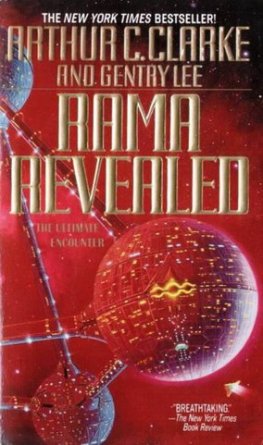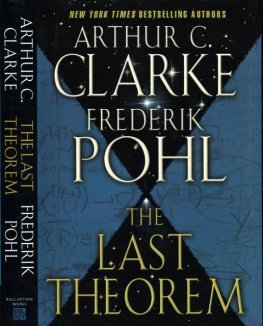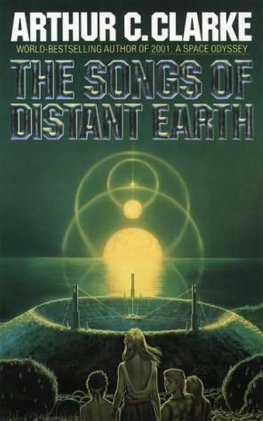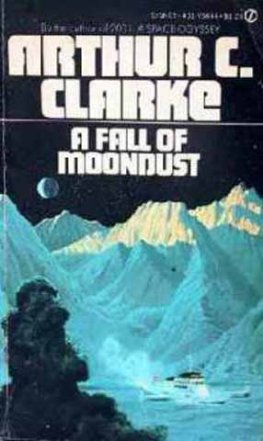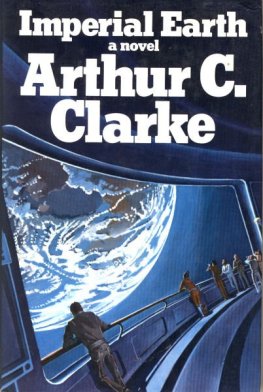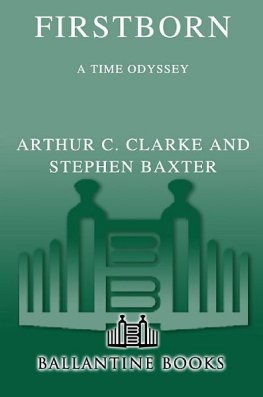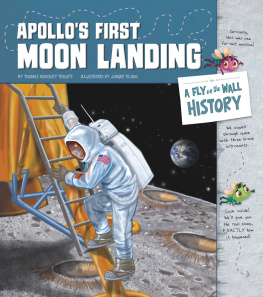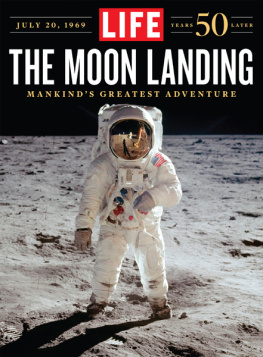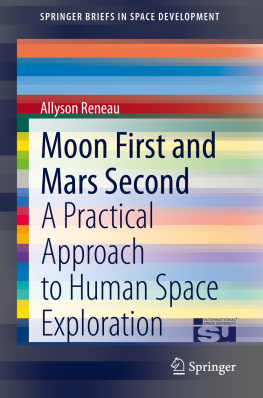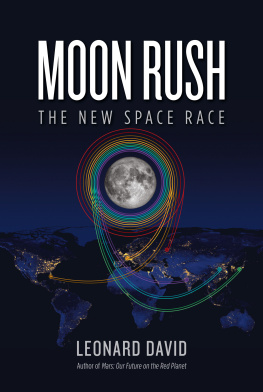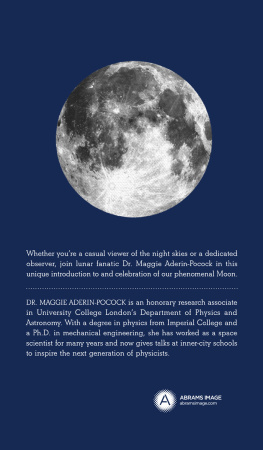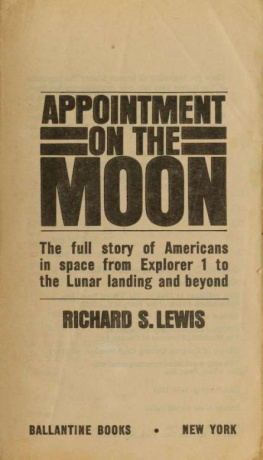Arthur Clarke - Earthlight
Here you can read online Arthur Clarke - Earthlight full text of the book (entire story) in english for free. Download pdf and epub, get meaning, cover and reviews about this ebook. year: 1955, publisher: Muller, genre: Science fiction. Description of the work, (preface) as well as reviews are available. Best literature library LitArk.com created for fans of good reading and offers a wide selection of genres:
Romance novel
Science fiction
Adventure
Detective
Science
History
Home and family
Prose
Art
Politics
Computer
Non-fiction
Religion
Business
Children
Humor
Choose a favorite category and find really read worthwhile books. Enjoy immersion in the world of imagination, feel the emotions of the characters or learn something new for yourself, make an fascinating discovery.

- Book:Earthlight
- Author:
- Publisher:Muller
- Genre:
- Year:1955
- ISBN:0-151-27225-5
- Rating:4 / 5
- Favourites:Add to favourites
- Your mark:
- 80
- 1
- 2
- 3
- 4
- 5
Earthlight: summary, description and annotation
We offer to read an annotation, description, summary or preface (depends on what the author of the book "Earthlight" wrote himself). If you haven't found the necessary information about the book — write in the comments, we will try to find it.
Earthlight — read online for free the complete book (whole text) full work
Below is the text of the book, divided by pages. System saving the place of the last page read, allows you to conveniently read the book "Earthlight" online for free, without having to search again every time where you left off. Put a bookmark, and you can go to the page where you finished reading at any time.
Font size:
Interval:
Bookmark:
Arthur Clarke
Earthlight
Chapter I
The monorail was losing speed as it climbed up out of the shadowed lowlands. At any moment now, thought Sadler, they would overtake the sun. The line of darkness moved so slowly here that, with a little effort, a man could keep abreast of it, could hold the sun balanced on the horizon until he had to pause for rest. Even then, it would slip so reluctantly from sight that more than an hour would pass before the last dazzling segment vanished below the edge of the Moon, and the long lunar night began.
He had been racing through that night, across the land that the first pioneers had opened up two centuries ago, at a steady and comfortable five hundred kilometers an hour. Apart from a bored conductor, who seemed to have nothing to do but produce cups of coffee on request, the only other occupants of the car were four astronomers from the Observatory. They had nodded affably enough when he came aboard, but had promptly lost themselves in a technical argument and had ignored Sadler ever since. He felt a little hurt by this neglect, then consoled himself with the thought that perhaps they took him for a seasoned resident, not a newcomer on his first assignment to the Moon.
The lights in the car made it impossible to see much of the darkened land through which they were racing in almost complete silence. Darkened, of course, was only a relative term. It was true that the sun had gone, but not far from the zenith the Earth was approaching its first quarter. It would grow steadily until at lunar midnight, a week from now, it would be a blinding disk too bright for the unprotected eye to gaze upon.
Sadler left his seat and went forward, past the still-arguing astronomers, toward the curtained alcove at the front of the car. He was not yet accustomed to possessing only a sixth of his normal weight, and moved with exaggerated caution through the narrow corridor between the toilets and the little control room.
Now he could see properly. The observation windows were not as large as he would have liked; some safety regulation was responsible for that. But there was no internal light to distract his eyes, and at last he could enjoy the cold glory of this ancient, empty land.
Coldyes, he could well believe that beyond these windows it was already two hundred degrees below zero, though the sun had sunk only a few hours before. Some quality of the light pouring down from the distant seas and clouds of Earth gave the impression. It was a light tinged with blues and greens, an arctic radiance that gave no atom of heat. And that, thought Sadler, was surely a paradox, for it came from a world of light and warmth.
Ahead of the speeding car, the single railsupported by pillars uncomfortably far apartarrowed into the east. Another paradox; this world was full of them. Why couldnt the sun set in the west, as it did on Earth? There must be some simple astronomical explanation, but for the moment Sadler could not decide what it was. Then he realized that, after all, such labels were purely arbitrary, and could easily get misplaced when a new world was mapped.
They were still rising slowly, and there was a cliff on the right which limited vision. On the leftlets see, that would be south, wouldnt it?the broken land fell away in a series of layers as though a billion years ago the lava welling up from the Moons molten heart had solidified in successive, weakening waves. It was a scene that chilled the soul, yet there were spots on Earth as bleak as this. The Badlands of Arizona were equally desolate; the upper slopes of Everest were far more hostile, for here at least was no eternal, ravening wind.
And then Sadler almost cried out aloud, for the cliff on the right came to a sudden end as if a monstrous chisel had sliced it off the surface of the Moon. It no longer barred his view: he could see clear round to the north. The unpremeditated artistry of Nature had produced an effect so breathtaking that it was hard to believe it was merely an accident of time and place.
There, marching across the sky in flaming glory, were the peaks of the Apennines, incandescent in the last rays of the hidden sun. The abrupt explosion of light left Sadler almost blinded; he shielded his eyes from the glare, and waited until he could safely face it again. When he looked once more, the transformation was complete. The stars, which until a moment ago had filled the sky, had vanished. His contracted pupils could no longer see them: even the glowing Earth now seemed no more than a feeble patch of greenish luminosity. The glare from the sunlit mountains, still a hundred kilometers away, had eclipsed all other sources of light.
The peaks floated in the sky, fantastic pyramids of flame. They seemed to have no more connection with the ground beneath them than do the clouds that gather above a sunset on Earth. The line of shadow was so sharp, the lower slopes of the mountains so lost in utter darkness, that only the burning summits had any real existence. It would be hours yet before the last of those proud peaks fell back into the shadow of the Moon and surrendered to the night.
The curtains behind Sadler parted; one of his fellow passengers came into the alcove and took up a position by the window. Sadler wondered whether to open the conversation. He still felt a little piqued at being so completely ignored. However, the problem in etiquette was solved for him.
Worth coming from Earth to see, isnt it? said a voice from the gloom at his side.
It certainly is, Sadler replied. Then, trying to be blase, he added: But I suppose you get used to it in time.
There was a chuckle from the darkness.
I wouldnt say that. Some things you never get used to, however long you live here. Just got in?
Yes. Landed last night in the Tycho Brahe. Havent had time to see much yet.
In unconscious mimicry, Sadler found himself using the clipped sentences of his companion. He wondered if everyone on the Moon talked like this. Perhaps they thought it saved air.
Going to work at the Observatory?
In a way, though I wont be on the permanent staff. Im an accountant. Doing a cost-analysis of your operations.
This produced a thoughtful silence, which was finally broken by: Rude of meshould have introduced myself. Robert Molton. Head of Spectroscopy. Nice to have someone around who can tell us how to do our income tax.
I was afraid that would come up, said Sadler dryly. My names Bertram Sadler; Im from the Audit Bureau.
Humph. Think were wasting money here?
Thats for someone else to decide. Ive only got to find how you spend it, not why.
Well, youre going to have some fun. Everyone here can make out a good case for spending twice as much money as they get. And Id like to know how the devil youll put a price tag on pure scientific research.
Sadler had been wondering that for some time, but thought it best not to attempt any further explanations. His story had been accepted without question; if he tried to make it more convincing, he would give himself away. He was not a good liar, though he hoped to improve with practice.
In any case, what he had told Molton was perfectly true. Sadler only wished it were the whole truth, and not a mere five per cent of it.
I was wondering how were going to get through those mountains, he remarked, pointing to the burning peaks ahead. Do we go overor under?
Over, said Molton. They look spectacular, but theyre really not so big. Wait till you see the Leibnitz Mountains or the Oberth Range. Theyre twice as high.
These are quite good enough to start with, thought Sadler. The low-slung monorail car, straddling its single track, bored through the shadows on a slowly rising course. In the darkness around them, dimly seen crags and cliffs rushed forward with explosive swiftness, then vanished astern. Sadler realized that probably nowhere else could one travel at such velocities so close to the ground. No jet liner, far above the clouds of Earth, ever gave such an impression of sheer speed as this.
Font size:
Interval:
Bookmark:
Similar books «Earthlight»
Look at similar books to Earthlight. We have selected literature similar in name and meaning in the hope of providing readers with more options to find new, interesting, not yet read works.
Discussion, reviews of the book Earthlight and just readers' own opinions. Leave your comments, write what you think about the work, its meaning or the main characters. Specify what exactly you liked and what you didn't like, and why you think so.

